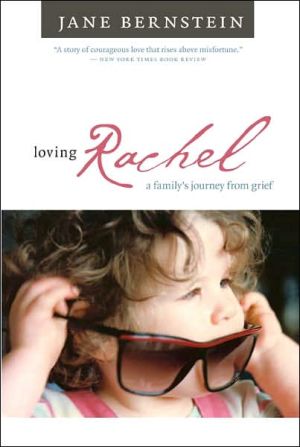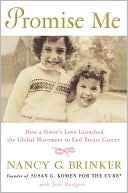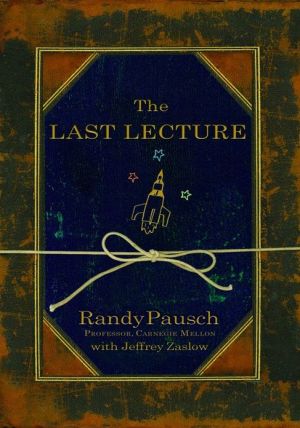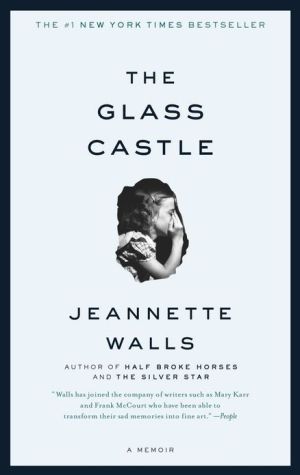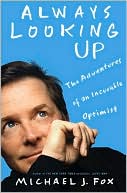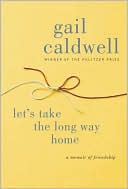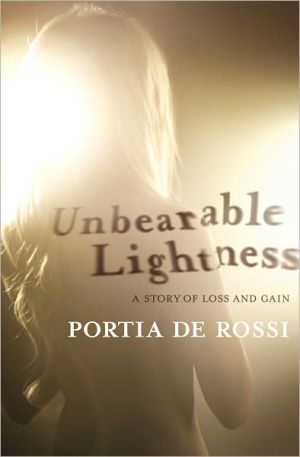Loving Rachel: A Family's Journey from Grief
In 1983, Jane Bernstein had everything she ever wanted: a healthy four-year-old daughter, Charlotte; a happy marriage; a highly praised first novel; and a brand new baby, Rachel. But by the time Rachel was six weeks old,\ a neuro-ophthalmologist told Jane and her husband that their baby was blind. Although there was some hope that Rachel might gain partial vision as she grew, her condition was one that often resulted in seizure disorders and intellectual impairment. So began a series of...
Search in google:
A candid and compelling chronicle of one family’s bumpy road toward accepting their mentally retarded daughter Publishers Weekly In heart-wrenching detail the struggle of a New Jersey family to cope with a near-blind, probably retarded infant daughter is chronicled in this journal that begins with the child's birth in 1983 and ends in her third year. Bernstein (Departures) and her husband, already the parents of three-year-old Charlotte, knew early on that something was amiss when Rachel remained an unusually placid baby, sleeping much of the time. Devastated though they were by the diagnosis of optic nerve hypoplasia, an uncommon disorder, the parents emerged from grief, moved through stages of conflict, researched the etiology of Rachel's condition, worked with their child and, eventually, achieved a modest reward in their daughter's limited development. The story of Rachel is also a story of a marriage and the ways families are changed when they not only accept but actively love their ``special'' child. (June)
Loving Rachel\ A Family's Journey from Grief, 1988 \ \ By Rachel Bernstein \ University of Illinois Press\ Copyright © 2007 Rachel Bernstein\ All right reserved.\ ISBN: 978-0-252-07483-7 \ \ \ Introduction\ It took me a long time to get comfortable with Loving Rachel as the title of my 1988 book about my daughter Rachel. It seemed a little soft and sentimental at first, not at all the way I saw myself or my own work. I simply got used to it, the way one grows accustomed to the name of a child or a dog. Fifteen years later, when I decided to write a second book about Rachel, I went back to that volume and saw for the first time how apt the title was. Like the best of titles, it captured something of the essence of the book, its most important theme-one that I had been unable to see, even though I was the author. \ The story I told in that earlier work began in 1983, shortly before Rachel's birth, and ended in 1987, when she was still in preschool. The woman at the start of that story is cheerful and pregnant. She has a healthy little girl of nearly four, a husband she loves, and a house in a New Jersey suburb with a duck pond and grand white Presbyterian church in the center of town that are so picturesque they've been reproduced as a jigsaw puzzle ("Duck Pond in Spring"). Though she is far from naïve, she has no particular anxiety about this second pregnancy, an easyone, free from even the mundane discomforts that bedevil most women.\ After an uneventful labor, the baby is born. She looks like an Eskimo baby, with a sweet, round face, almond-shaped eyes, and a head of black straight hair that the nurses comb into a peak. Though she's unusually quiet, it's hard to be overly alarmed by an infant who sleeps well, feeds well, and rarely cries. If anything, the new baby's placid nature makes it possible for the mother to spend more time helping her older daughter adjust to this small, wrinkled intruder. The baby's father is the one who is concerned. He's a biologist who's done work in vision, and though it's at a molecular level, on dragonfly eyes, he knows something about vision in humans. He thinks their daughter, at six weeks old, should be able to track moving objects. At a conference, he approaches a researcher who studies infant vision. She concurs.\ Days later, the parents take this tiny baby to a specialist in New York, a pediatric neuro-ophthalmologist, who dilates the baby's pupils and tells them that she has optic nerve hypoplasia and is blind. As the brain matures over the next few months, some improvement in visual functioning could occur. It might allow her to see light and shadow, but they should expect nothing more than that. As for the disorder, all he can say is that something happened during the seventh or eighth week of development. Some insult, perhaps viral. It is not a progressive disease, nor is it inherited. There is no cure. They should contact the New Jersey Commission for the Blind and arrange for services to help her educationally. It's all they can do for now.\ The doctor begins to dictate his notes. Stunned, the parents eventually walk out. They close the doctor's door and find themselves on terrain that is terrifying and unfamiliar, where they will become strangers to themselves and each other.\ Weeks later, during some tests, this stunned couple learns that blindness is only one consequence of optic nerve hypoplasia; there is a "significant association" of such things as "intellectual impairment" and seizure disorder as well. Indeed, when the husband conducts a literature search and finds the very few papers written about ONH (which, although rare, is one of the three most common causes of blindness in babies), it seems that these related disorders are almost inevitable. It would take time for the parents to find out if their child would be blind or see only light and shadow, if she would be intellectually impaired (a term neither of them fully comprehends), and if she would have a seizure disorder.\ Rachel did not suffer in any way in these early months. She was not fussy or uncomfortable. We-her father, Paul; sister, Charlotte; and I-were the ones affected, first by the initial diagnosis of blindness, and then by the long and wrenching wait to find out the range and extent of her impairments.\ We did not weather the beginning well. We loved this baby and were fiercely committed to her, and in this way we were united, but in our grief we became exaggerated versions of who we had been before Rachel's birth. I needed to talk and worry and read everything ever written about blindness and disability, to immerse myself in the literature, to collect facts and listen to others' stories, as if my expertise might alter Rachel's fate. Knowledge was both a balm and a curse: I did become informed, while at the same time unearthing various terrifying disorders that were similar to Rachel's but degenerative. My husband's grief traveled on different tracks. Though he brought home every paper on ONH that he could find, he did not want to read these studies, hear my concerns, or talk about the future. My moods shifted predictably after tests or reports from specialists, spurred by gloomy results or hopeful words; what triggered his ups and downs was mysterious and unpredictable, even to him. His grief was so deeply buried and so rarely expressed that whenever he broke down, it was as if he were hearing the news for the first time. Seldom were we emotionally in the same place.\ For all of this, I was determined not to drown in unhappiness. When I was seventeen and my sister was murdered, I learned what could happen to a wounded family. The night after Rachel's diagnosis, I looked in on Charlotte, asleep in her room, and remembered what it was like to be the only child left, to feel that I had to be good and could never be good enough. I vowed that it would not be Charlotte's burden and tried, even in the earliest days, to make her feel that the joys and sorrows in her life mattered as much as anything that had happened to Rachel. When I look back, though, it sometimes seems as if the parties and family trips took place in the midst of a giant storm, because in truth, Rachel was like a hurricane that whipped through our house, blowing down the walls and ceilings, damaging Paul, Charlotte, and me, the relationships we had with each other, this lovely, fragile thing we called our family. That she was beloved did not lessen the chaos her birth had wrought. It's true that we worked to rebuild our family and repair the damage, but that repair work took longer than it might have if her diagnosis had been concrete.\ The wait to find out if Rachel would have any vision, if she would be among the rare lucky ones without other disabilities, or if her impairments would be mild was long and full of dramatic events. In the summer before her first birthday, she reached for a brown kidney bean on a brown high-chair tray, proving to her father what I had begun to suspect: that she could see more than merely light and shadow. A month after that happiest incident, the infantile spasms began. First, there was a single episode in which she stiffened and bent forward; then clusters of seizures, six times a day. Words from textbook descriptions of infantile spasms came back. "Brain damage is usually evident ... Intellectual prognosis is poor."\ The treatment, with corticosteroids and adrenocorticotrophic hormone (ACTH) administered by needle, was devastating. I spent a week in a New York City hospital with her, coming back to our house in New Jersey only once, for Charlotte's first day of kindergarten. By the time I brought Rachel home, she was moonfaced and bloated; she could no longer sit or stand. We took turns holding her and listening to the unearthly hum she made, and we took turns walking away.\ By her first birthday, all I wanted was for her to be free from pain.\ Eventually, the drug treatments ended and over the next few months she began to regain her health. We resumed our waiting, this time from a different vantage point entirely.\ Rachel's milestones over the next three years tell the story of her gains and deficits, but another story evolved over this same period that I didn't fully recognize at first. Despite all the tears and celebrations and gut-wrenching inadvertent comparisons with children her age, we had begun to accommodate to her. Without a word of discussion, we had begun to accept that there would be no miracles, medical or otherwise. What I had feared most had come to pass when she had infantile spasms. She was intellectually impaired, though I would not know the extent or full meaning of that for years, and she did have a seizure disorder. She was also cheerful and responsive and continued to make better use of her vision than anyone had expected. At twenty months she delighted us by starting to vocalize and form words, and at age two she walked at last. There were some disheartening signs of linguistic dysfunction, and scary EEGs, yet for every dream that was extinguished, another took its place. Even when I realized that her life would in no way resemble any life I'd intimately known, I kept planning and dreaming of all she could be.\ It wasn't that I was particularly resilient as a mother. My constant search to find the best for Rachel, my determination to move past what she could not do, to find her strengths and abilities, was a quality of parenthood itself. I just hadn't known it. Before Rachel was born, I'd see a mother with a retarded child and wonder how that woman could go on shaking cantaloupes so blithely, how she kept up her strength to raise a child with no expectations, no future. I hadn't known that all children have a future, and that sometimes a parent's work is to figure out what that future is and how to attain it.\ During this time I often thought about how I had searched for books about blindness and disability after Rachel was born. The only family stories I could find in the small local library felt compressed and false, too neat. The early days typically "passed in a blur," and in the end-the book's end-the family finds that they have grown because of this "special" child, this "gift from God." I had been offended by these tales, especially in the days when I was searching for some kind of reflection of what had happened to us.\ I hated the treacly language people often used when writing or speaking about children with "special needs," the ruffled, fluffy packaging, the compression and tidying up of a family's disarray into neat, predictable little stages. I loved my daughter and accepted her as she was, but I didn't celebrate her disabilities or love her more because of them, or think she was put on earth to teach me something. It seemed to me that we had accommodated to Rachel in the same way I imagined a person accommodating to the loss of an arm or leg. We missed the life we'd had before her birth. We were aware of what we had lost. But we were okay about it; we were pushing forward, patching together the fragments of our family, adapting to her, incorporating her, laughing when she was funny (as she often was) or at the family we had become, and loving her without question.\ I thought about these things a lot. When eventually I wrote about Rachel and my family, I hoped I'd written a compelling story for anyone who liked to read. In the back of my mind there remained the image of someone searching through book titles, desperate for a story that might lessen her sense of isolation, and I wrote the book for that person, too.\ To me, Loving Rachel was grittier and harsher than the books I found on the library shelves. That was one of the reasons I was uncomfortable with the soft title, and the pink book jacket, as if inside was a romance novel. What I would not see for fifteen years was that, for all of turmoil I described, all the quarrels and tears and erratic behavior, there was a kind of sunniness to my narrative, a hopeful feeling, especially toward the end of the book, when I showed that this little child, partially sighted and intellectually impaired, was adored by her family. While this was-and is-still true, the surprise I felt when I reread my own work arose from my realization that I'd thought the whole story was about love. I'd thought that everything I was living and everything yet to come was about coming to terms with Rachel as she was. It was as if I had believed that our ability to love her, which took no effort at all, was proof that we were up to any challenge that might come our way.\ If it wasn't easy ever, the love was simple and instinctual in those early years. She was my daughter, my flesh and blood. I did not think about loving her, or work at it; it took no courage or special effort on my part. If anything, my love was a source of sadness at times because of its depth and my inability to change things for her or change the world, which I feared would not be accepting of her. Still, I did not see that I was much different from any primate mother, except perhaps in my determination to keep my family together. I didn't want to lose my older daughter and husband; in fact, I wanted, nearly demanded, that we manage to know joy. That determination, borne out of my own complex history, was the one thing I can still say that I fought hard to have. The rest, as I've said, the love part-that was easy.\ So this seemed to be the whole story. We had lived it; we had come to terms with Rachel as she was.\ * * *\ "Are you going to read your mother's book?" a woman asks Charlotte at a book party in the fall of 1988, shortly after Loving Rachel has been released.\ Charlotte's shiny hair falls nearly to her waist. Behind her wire-rimmed glasses are huge blue eyes that register every emotion-delight, impatience, scorn.\ How awful it had been in the first months after Rachel's birth to look up from weeping and see Charlotte standing in the corner, watching mutely, those big eyes full of fear and confusion.\ Now, though, she flips that long hair and says, in a dismissive way, "I don't need to read it. I lived it."\ She is nine years old.\ * * *\ "Will you write a second Rachel book?" a woman asks a few weeks later. She is in the audience at a talk I've given at the public library in Livingston, New Jersey. She has just introduced herself as the mother of a fourteen-year-old girl with developmental disabilities, and she eagerly waits for my answer.\ "No!" I say, then quickly try to soften my answer by explaining that I had begun as a writer of fiction and want to return to what I love best-want, I do not say, to regain a part of my old life, my own imagination, apart from my daughter.\ The look on this woman's face stops me, though I cannot tell exactly what it means.\ "Oh, you will," she says. "You wait and see."\ Then she vanishes.\ * * *\ Over the ensuing years, I wrote a few essays about Rachel. These pieces described the years when Rachel was out of my arms, away from my constant protection. They were snapshots from when she was five or nine or fourteen, a way to mull over her experiences in school or our struggles with social services, and when she got older, my attempt to fully understand her. As the years passed and it became increasingly difficult to be Rachel's mother, that woman in the Livingston Public Library often came to mind-not her face, which I could no longer recall, or what she wore. It was her expression that I was beginning to understand, and her words: Oh, you will. You wait and see. I couldn't hear those words at the time, because I was in love. I was like a friend who believed that her arms around her baby were stronger than a seatbelt, that she could save her baby in a crash. How foolish my friend was to argue against the laws of physics. How foolish I had been to believe that my love would be enough. But I believed it nonetheless.\ Standing in the library that day, I could never have imagined that a time would come when all my effort would be spent trying to arrange for Rachel to live apart from me. I had heard about elderly parents of grown children with mental retardation, worrying about what would happen when they died. Still, at that time, the reality of Rachel as an adult was as remote to me as imagining my own death. Inevitable, yes-but I hadn't the time or the gloomy sensibility to fret about it.\ I could never have imagined standing on a street corner in Pittsburgh with two other mothers of kids with developmental disabilities. It's a March morning in 2003, the first blue-sky day in months in this gray city. Nearly fifteen years have passed since that night at the Livingston Public Library. George Bush is president; the search for weapons of mass destruction is under way. We're talking about cutbacks in services for our children when one of the women says, "I feel as if I've been handed a death sentence."\ Her words shoot through my body like lightning. Suddenly I can feel my fear. I don't want a war to break out. I dread the bloodshed, the worldwide repercussions, and the effect this expense will have on state budgets. Though Rachel at twenty is not violent, like this woman's eight-year-old son, her demands are constant and unquenchable. I feel as if I will be living forever with my daughter, and that it will kill me, little by little.\ (Continues...)\ \ \ \ \ Excerpted from Loving Rachel by Rachel Bernstein Copyright © 2007 by Rachel Bernstein. Excerpted by permission.\ All rights reserved. No part of this excerpt may be reproduced or reprinted without permission in writing from the publisher.\ Excerpts are provided by Dial-A-Book Inc. solely for the personal use of visitors to this web site. \ \
\ Publishers Weekly - Publisher's Weekly\ In heart-wrenching detail the struggle of a New Jersey family to cope with a near-blind, probably retarded infant daughter is chronicled in this journal that begins with the child's birth in 1983 and ends in her third year. Bernstein (Departures) and her husband, already the parents of three-year-old Charlotte, knew early on that something was amiss when Rachel remained an unusually placid baby, sleeping much of the time. Devastated though they were by the diagnosis of optic nerve hypoplasia, an uncommon disorder, the parents emerged from grief, moved through stages of conflict, researched the etiology of Rachel's condition, worked with their child and, eventually, achieved a modest reward in their daughter's limited development. The story of Rachel is also a story of a marriage and the ways families are changed when they not only accept but actively love their ``special'' child. (June)\ \
